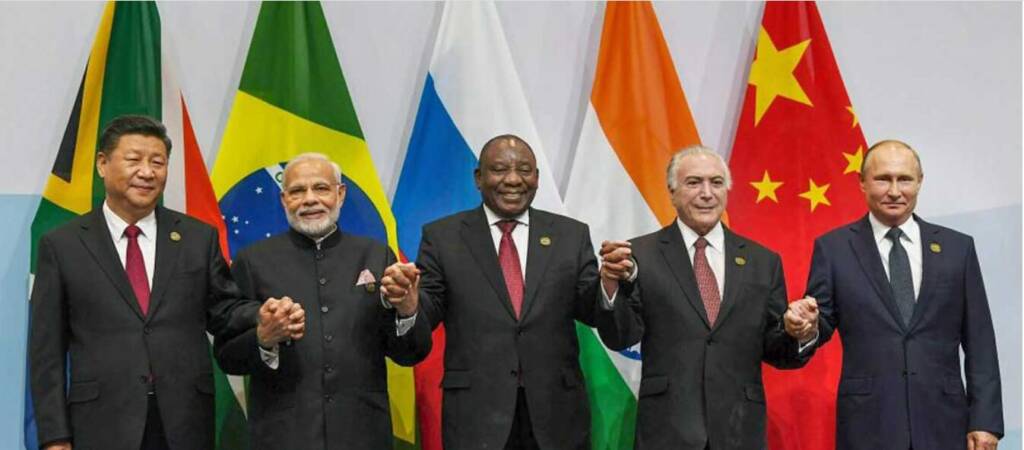Russian leader Vladimir Putin declared on Thursday (Sep 12) that more than 30 nations were lined up to join the BRICS bloc. This comes days after ex-US president Donald Trump declared that his administration would punish those countries seeking to join BRICS and create a new currency to counter the dominance of dollar.
Last week, Trump had warned, “If you are leaving the dollar, then forget about trading with the United States of America because we will impose 100 percent tariff on you.”
On Thursday Putin said, a total of 34 nations have now applied to join the bloc of developing economies. Putin said, “An active discussion has been initiated among all BRICS participants regarding the creation for a new category of partner states.”
BRICS has already undergone one major expansion this year: Iran, Egypt, Ethiopia, and the United Arab Emirates joined the previous members Brazil, Russia, India, China and South Africa to form BRICS plus.
Simply put, the developing world is fast drifting away from the Western hypocrites, towards a truly multi-polar world.
The way the US has weaponised dollar in international trade has weakened its reputation as a reliable tool for cross-border trade.
That’s why, even NATO nation Turkey last week applied to join the bloc.
BRICS wants to create a new system that would offer the member nations an independent financial system, one that the US won’t be able to control.
Here are five major reasons why new nations are so willing to join BRICS.
1. Diversification of Trade and Finance
In current system, many countries primarily use the U.S. dollar for international trade and finance. This means they rely heavily on the U.S. financial system and its rules.
BRICS Advantage: On the other hand, the BRICS is working on providing potential replacements. This includes trading in other currencies and developing new payment systems. For a member country, this means less reliance on the U.S. dollar. It can make their trade and financial systems more diversified and less exposed to U.S. economic policies.
2. Potential New Payment Systems
Current System: Today, many global transactions are processed through systems controlled by U.S.-based institutions.
BRICS Advantage: BRICS is considering creating new payment systems that aren’t controlled by the U.S. This means member countries could have more control over their financial transactions and avoid potential risks from U.S. economic decisions or sanctions.
3. Gold-backed Currency
Current System: Most international transactions are based on paper money, which is not backed by tangible assets.
BRICS Advantage: There are discussions about a BRICS currency backed by gold. Since, BRICS countries hold a significant amount of gold, a gold-backed currency could provide more stability and trust.
Just before the 2008 financial crisis, official gold reserves held by BRICS nations have grown from just over 1,500 tons to over 6,600 tons today.
It could make currencies of BRICS nations more valuable and reliable in international trade.
4. Reduced Impact of Economic Sanctions
Current System: The U.S. can impose economic sanctions that restrict a country’s ability to trade and access financial systems.
BRICS Advantage: By joining BRICS and using other systems and currencies, a country could better protect itself from the impact of such sanctions. It creates options for economic transactions that aren’t controlled by the U.S.
5. Influence in Global Economics
Current System: The U.S. dollar’s dominance allows the U.S. to borrow and spend extensively because there is high global demand for dollars.
BRICS Advantage: As more countries join BRICS and use different currencies, it could reduce the global demand for the U.S. dollar. This shift might weaken the dollar and lessen the U.S.’s economic power. For BRICS members, this can mean more influence in global economic policies and potentially better economic conditions for themselves.
US has today imposed hundreds of sanctions on Russia, China and Iran, all of them are BRICS members. US also keeps interfering in India’s internal affairs, triggering concerns in New Delhi.
That’s why, now all these bigwigs have joined hands to dethrone the USD and reclaim their fair share of global governance, a campaign that has now gained support from 34 more countries.
